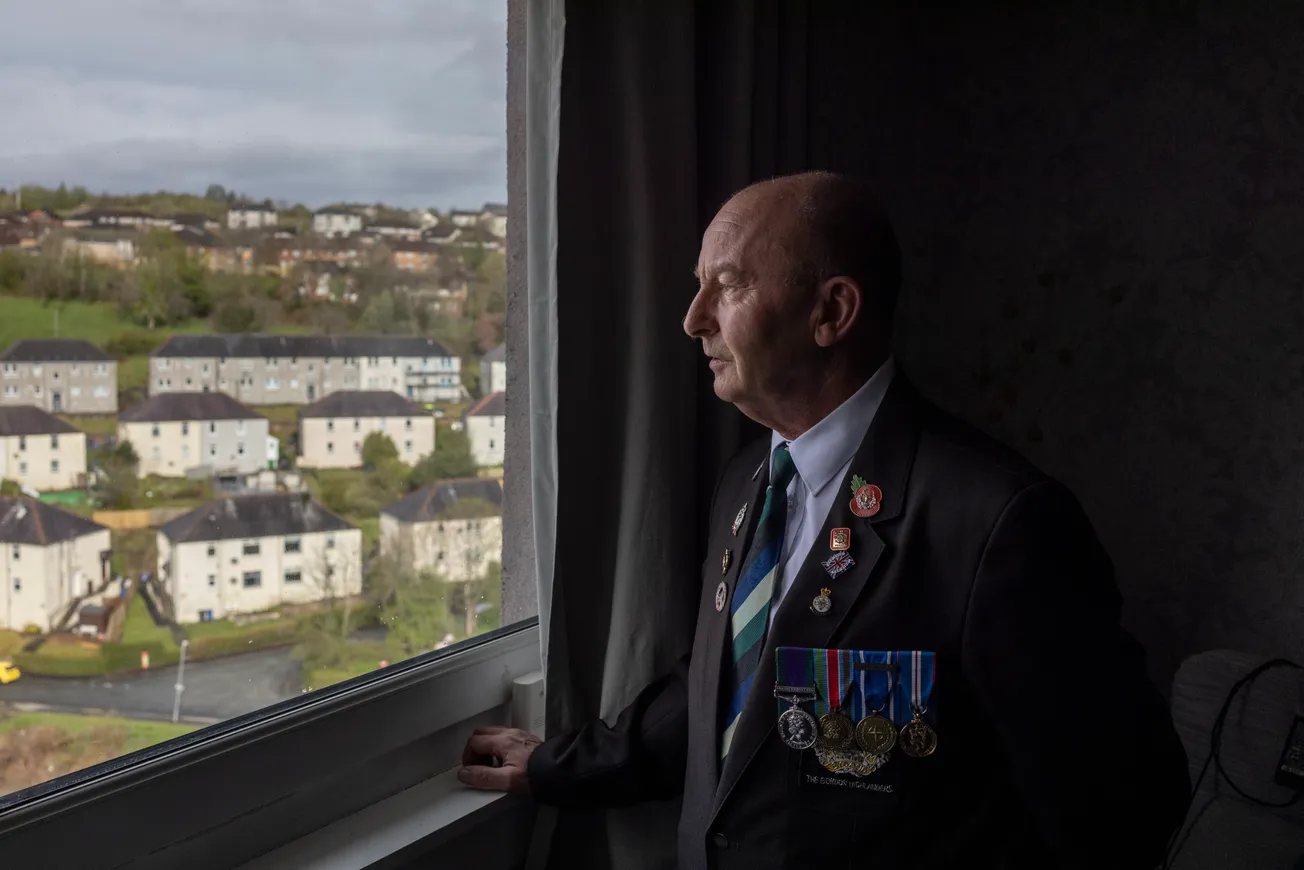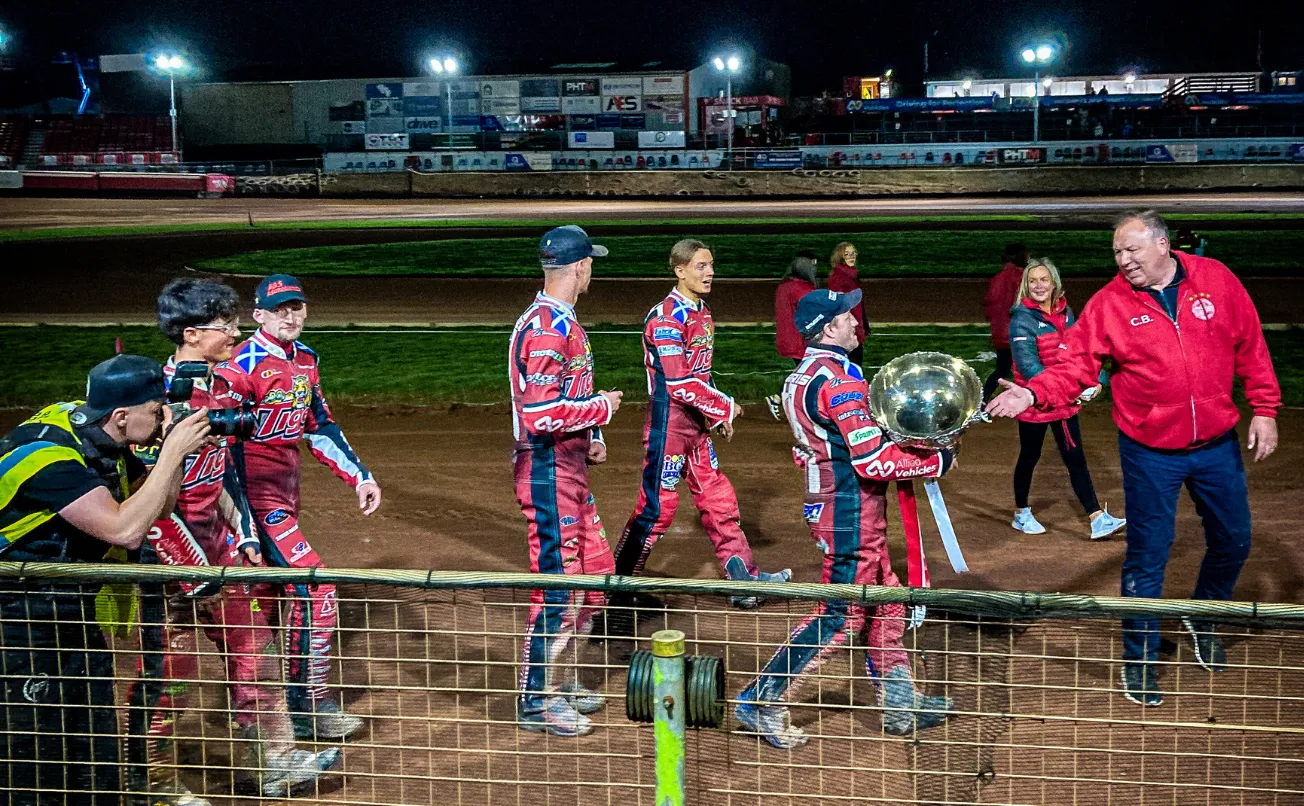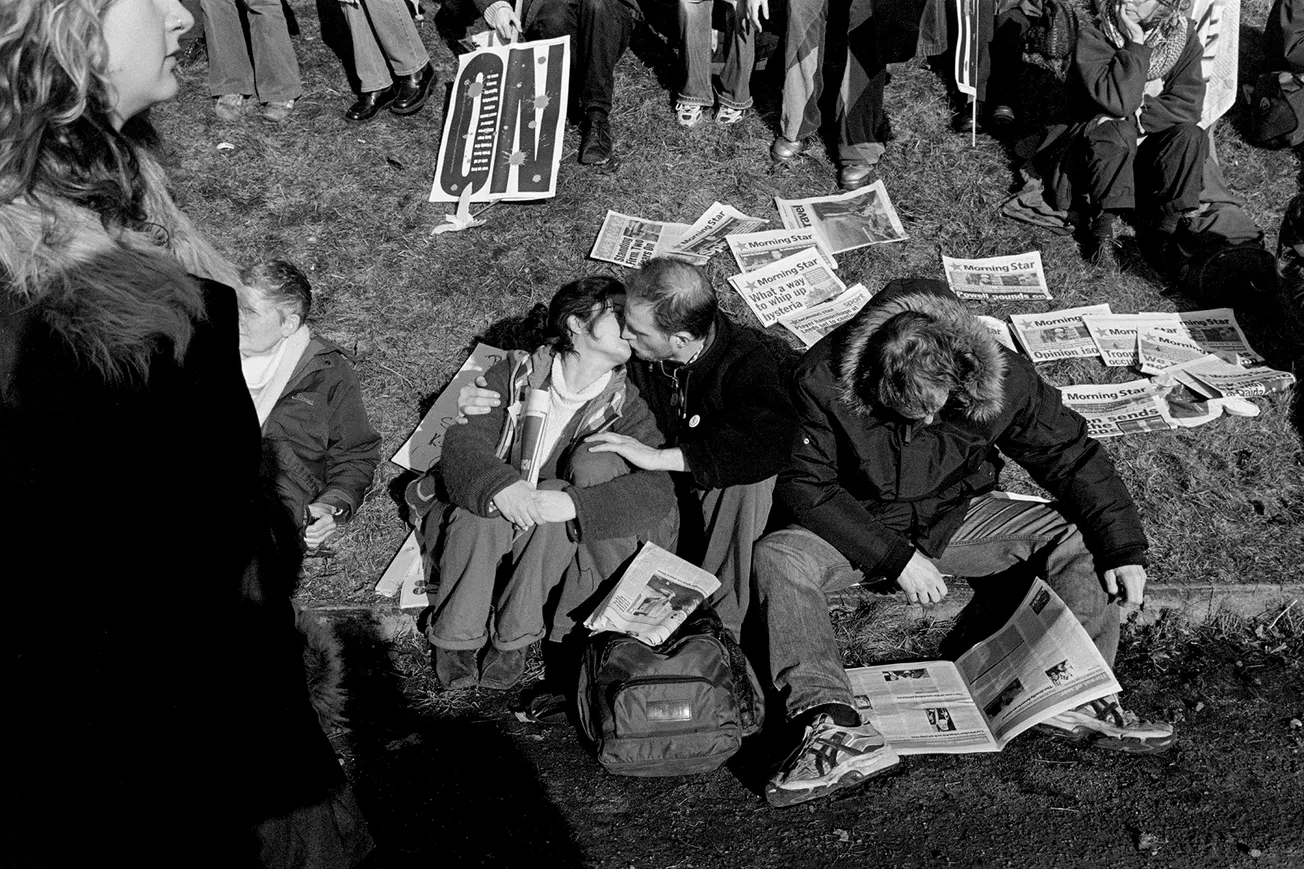Alex McAnespie wears a severe expression when he meets me at Greenock’s waterfront. It’s nothing personal, I’ll come to learn; just his manner. I’m gazing over the Firth’s calm waters when the 62-year-old arrives to pick me up straight after work, like a busy parent on the school run. McAnespie’s day job is a field manager for a meter reading company. But it’s not his salaried position that’s brought me to the front seat of his silver Mercedes, or the bright living room of his thirteenth floor flat of a council high-rise, which stands like a watchtower above Greenock. It’s the work he does after hours I want to discuss, and McAnespie’s past, which compels him to pursue it.
For seven days a week since 2019, beneath oil paintings of Parisian streets and ice skaters, McAnespie has manned a 24-hour helpline. When the phone rings, on the other end is a former member of the armed forces, usually one who has found themselves without a roof over their head. They’re reaching out to a dedicated charity — the Homeless Veteran Project (HVP). Answering the call is either McAnespie or Donna Armstrong, his HVP co-founder.
McAnespie himself is a veteran. He served in the Gordon Highlanders, then the Royal Highland Fusiliers from 1981 to 2004, leaving with the rank of sergeant. Born in Kilbirnie and raised in Skelmorlie, economic downturn and a love of the outdoors saw him sign up to the forces. Three years turned into 23, most of them spent in Germany with additional tours in Northern Ireland and Bosnia. In 2017, he and his wife, Christine, settled in Greenock.
Did he enjoy military life then? “It was brilliant. Brilliant bunch of friends. Some I’ve known for over 40 years”.
Following his return to the West of Scotland, McAnespie’s family experienced housing precarity similar to those he now helps. When the landlord of the Skelmorlie property they were living in decided to sell up, McAnespie applied for social housing. The local council told him they could only place the family in temporary accommodation — with himself in one hostel, his wife and children in another. Their dogs, the council said, would have to be placed in a kennel or put down.
“So, being subtle as I am,” he says, a sardonic grin lurking, “I informed them that this wouldnae be happening.” He threatened to show up outside the council offices in full uniform after phoning the press, telling them they could explain to the gathered reporters what was happening. “Within 18 hours I got a phone call saying they’d found me a house in Saltcoats.”
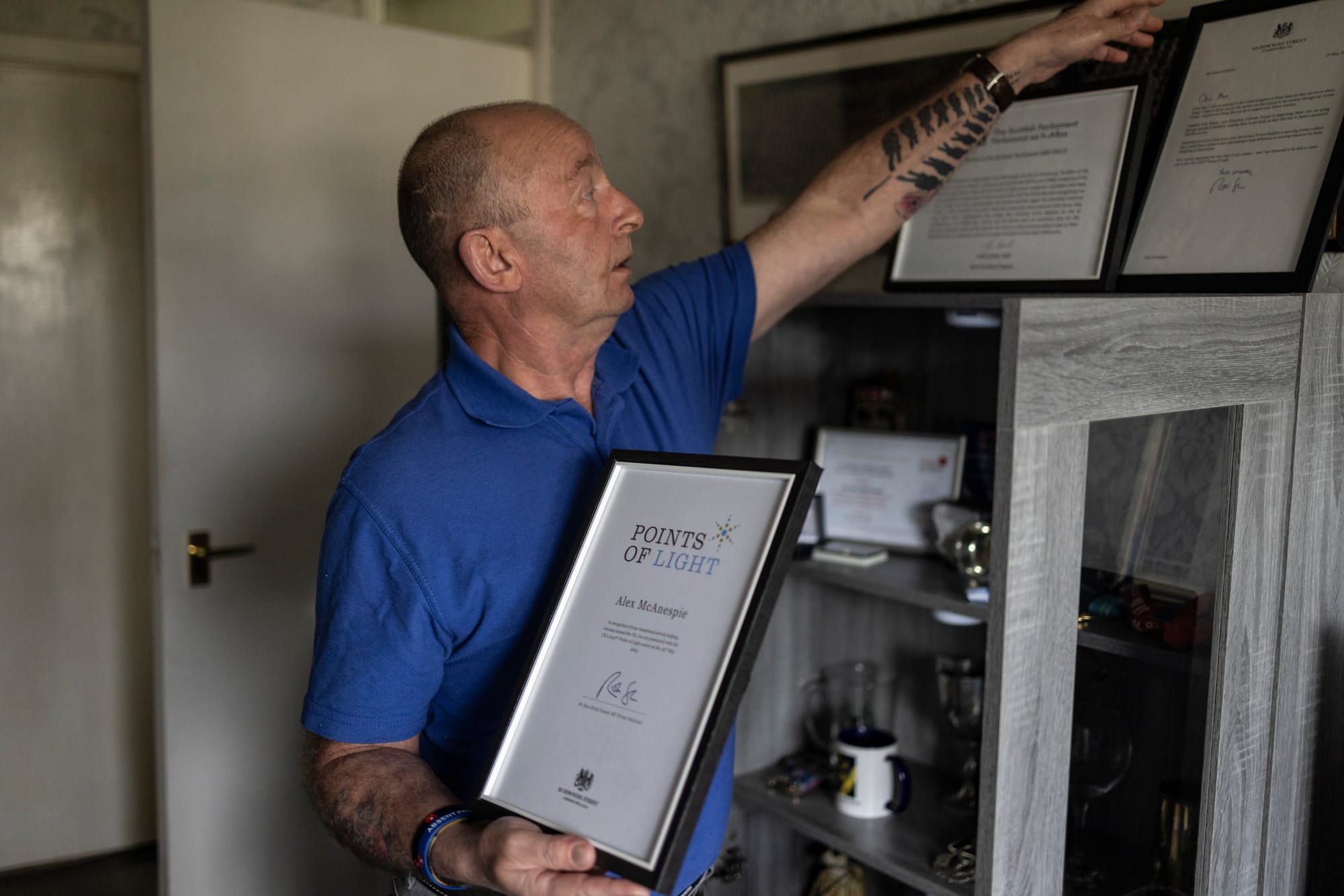
It’s fair to describe McAnespie as ‘cagey’. He has a soldier’s bearing; still and upright. But as the interview progresses, his shell occasionally cracks to expose the feeling beneath.
The Homeless Veteran Project emerged from a hard lesson about the charity sector. In 2018, McAnespie spotted a Facebook post about a fundraising sleep out, arranged by an organisation called Soldiers of the Streets (SotS). Participants were invited to spend a night in open air by the Paisley War Memorial to highlight the plight of homeless veterans.
McAnespie signed up; the thought of unhoused service personnel was like “one of your family’s in trouble”. At the sleep out, he met other veterans and felt a sense of camaraderie that had been lacking since returning to civilian life. He says this is something that characterises HVP’s service users too. “A lot of these guys, they’ve lost ties to the regiment, lost ties to the friends they had.” He continued volunteering with SotS, assisting to set up a halfway house in Irvine which provided accommodation for homeless veterans at nominal prices.
It was through SotS that he first met Donna Armstrong, who was moved to volunteer by the death of her nephew whilst he was serving in Afghanistan. Armstrong is one of many SotS connections McAnespie made that endure. “There was a good bunch of us and we’ve all remained friends.”
But, he adds: “they were duped into thinking that they were doing good.” I note the switch in pronouns.
Trouble surfaced when, wanting to boost the charity’s profile — and its funds — Armstrong entered it into Tesco’s Blue Token Scheme, which provides grants to various charities voted on by customers in store. Customers at the supermarket’s Greenock and Port Glasgow locations selected SotS to be awarded £4,000.
But after being informed of the good news, SotS’s head office, based in the Welsh town of Rhyl reacted strangely — flatly refusing to share the charity’s accounts, a condition of receiving the grant, and “getting shirty with the volunteers up here,” recalls McAnespie, “saying they had no right to put them forward for anything.”
Alarm bells now ringing, he began investigating and was shocked to discover that three of the directors were arrested on suspicion of fraud and released on bail in 2016. They were placed under a new investigation when it was revealed a fundraising company SotS engaged was in fact being run by them, the directors allegedly paying themselves an allowance and wages from money raised, with little leftover for charitable purposes.
How did it feel finding out about these allegations?
“We were gutted,” he says. “We couldn’t believe that this was going on and we were collecting money and sending it down south.”
But there was more.
McAnespie found out that SotS’s (now deceased) chair, Hugh William Murray, was the former secretary for the British National Party in Wales. Three of the charity’s founders were also members of the far-right party. Former servicemen, one offered assistance by the charity and another who had supported it, had raised concerns about its practices and political connections with the media as early as 2012.
“My immediate reaction was, ’I want nothing to do with this. It stinks,’” McAnespie says firmly. “You’re talking the very extreme right wing, giving the perception that the military are right wing. The military assist everybody and don’t discriminate.”
He and the other local volunteers resigned en masse in early 2019. SotS subsequently withdrew from Scotland, abandoning responsibility for the house in Irvine where several veterans were homed. The way McAnespie saw it, there was a gap and somebody needed to fill it. “So we decided to set up the Homeless Veterans Project,” he says, adding, “with strict guidelines.”
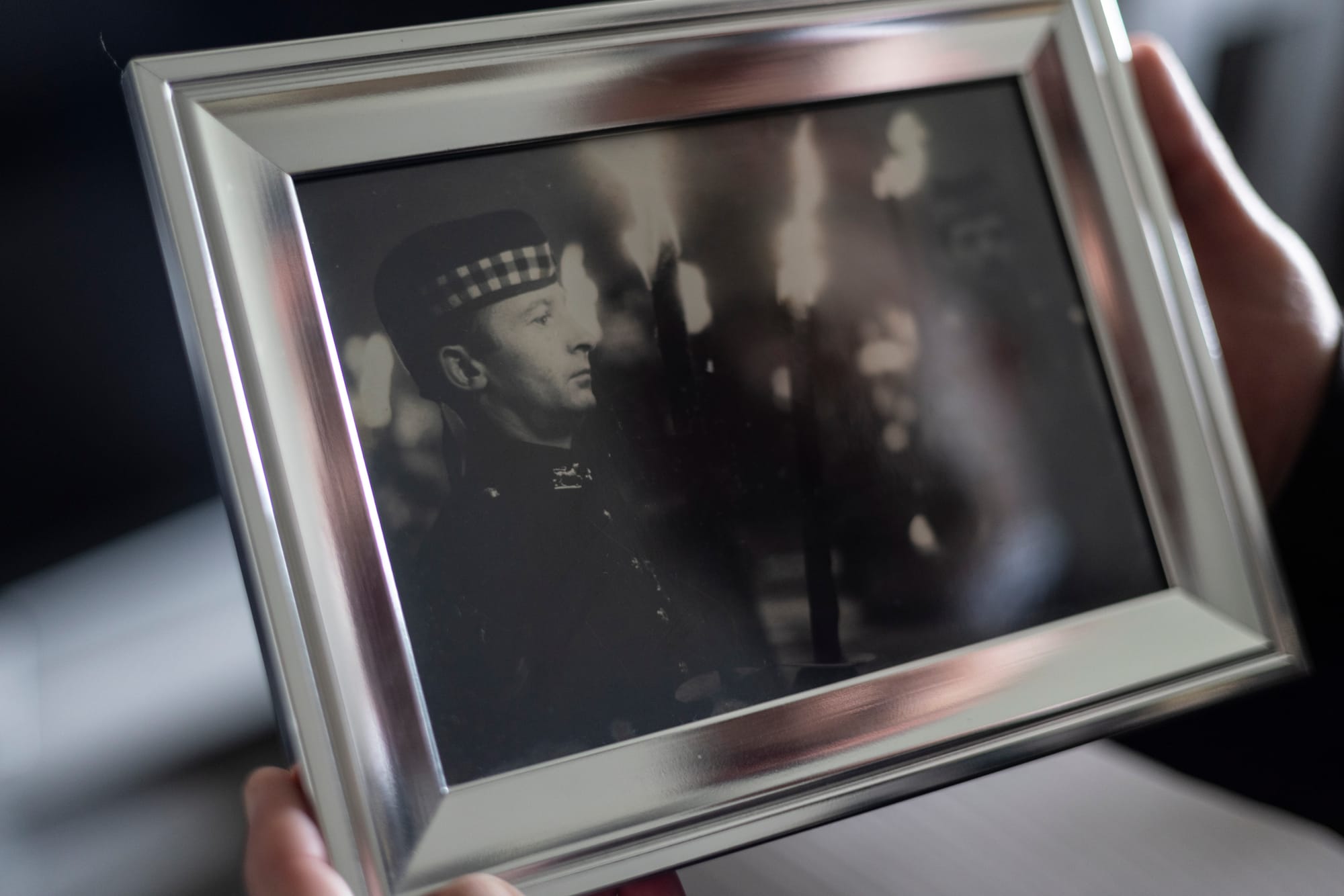
The charity is registered with OSCR. Their books are kept by Christine, and audited for free by a local accountancy firm; they are scrupulous about use of funds. “Our belief is, ‘charity is charity,’” McAnespie asserts. “If you raise a pound, then that pound goes to the charity. End of.”
A cluster of volunteers help with fundraising, but it’s McAnespie and Amrstrong dealing directly with those seeking support, occasionally assisted by a HVP trustee. Charity work, including calls from service users, averages 30 hours per week on top of their full-time jobs. Clients find them individually or through referrals from other charities or the police. Sometimes they have to physically search for veterans on the street they’ve received a tip about. “There have been cases where we’ve received a call at ten o’clock at night, gone out to investigate it, maybe not got back till three o’clock in the morning,” says Alex, “and I’m up starting my work at six o’clock.”
McAnespie easily remembers the very first call for help HVP answered in 2019. “An ex-para doon in Ayrshire’s marriage had split up,” he recalls. “Within an hour of that phonecall, he was in the [Irvine] house.” They later found him a permanent address and the veteran was eventually able to start his own business. “Things are going well for him,” says McAnespie, warmly.
Over six years in operation, the organisation has rehomed 340 veterans — just over one per week — in both private and social housing. But since 2019, the housing emergency has noticeably altered the nature of requests to HVP. “We’re getting more and more families who are ending up on the street, not just single individuals,” says Alex. “Rents are being put up to astronomical rates that nobody can afford.”
All Scottish local authorities have pledged to uphold the Armed Forces Covenant, a longstanding government promise that veterans and their families “should face no disadvantage compared to other citizens in the provision of public services.” In practice, this means smoothing the process of accessing social housing. However, the law doesn’t mandate specific outcomes, simply instructing authorities to have “due regard” to veterans’ sacrifices when providing services. McAnespie thinks councils are frequently falling short in this, and their staff are not adequately informed of, what the Covenant terms, the nation’s “moral obligation” towards veterans.
He points out the scarcity of available properties and suggests refugees are being given precedence over people who have been on the waiting list for years. “Unfortunately, and it’ll be made out to sound in some way racist, but the priorities of the government are not for their own,” he says, before quickly adding, “nothing against refugees coming into the country.”
A council source I speak to later says refugees are categorically not being given priority for housing. Homelessness applications are assessed in date order, at least in Glasgow. The process differs between local authorities, but basically, everyone’s being failed equally when it comes to social housing, says the source. I ask how the Armed Forces Covenant affects decision making. “Maybe historically that might have got you more priority,” they reply. “Glasgow used to work on a points based system, but it doesn’t now”.
The housing crisis has also led to a rise of temporary accommodation across the UK. McAnespie decries this too; placing veterans with complex PTSD in hostels, alongside people with drug and alcohol addictions, he says, creates “a powder keg waiting to explode”.
Fidgeting with his glasses, he adds: “If you’ve got people running about screaming in Arabic, or whatever Middle Eastern language, you’ve potential to trigger flashbacks. It could end up in a bloodbath somewhere.”
I contact a former employee of a company providing temporary accommodation in Glasgow to check how likely this is. While they have witnessed incidents of drink or drug fuelled violence between individuals, and say conditions are often chaotic they hadn’t seen clashes between specific groups precipitated by languages.
Perhaps anticipating questions that challenge his statements about migration, McAnespie stresses that HVP houses veterans of all backgrounds: “We’ve rehomed veterans of several nationalities that have worked with the British forces,” he says. “Different religious groups, ethnicities — we don’t discriminate. The only thing, for us as an organisation, [is] they’re a veteran.”
He offers the example of an unemployed Jamaican ex-serviceman they recently assisted in Edinburgh. He contacted HVP after his physically abusive partner threw him and their two-year-old child out the house. HVP booked temporary accommodation in a hotel, but the staff refused the veteran, telling him: “We don’t take people of your background.”
McAnespie is unsure whether the discrimination was racial, or due to the veteran’s housing status — or both. Either way, HVP contacted Booking.com, who removed the hotel from their listings, and Scotland’s housing minister, Paul McLennan, who helped rehome the two in social housing within 24 hours. HVP organised clothes, food and furniture donations, as well as toys for the child. The veteran has now found a new job.
How does McAnespie feel when he sees the impact of interventions like this, I ask. I’m surprised when he abruptly sits up, jolted by the question. For the first time in our chat, his expression approaches something like unguardedness. “It’s always good to see somebody move from being broken tae gaining their confidence and spirit again,” he replies. “A lot of them can be close to just ending it”.
There’s a waver in his voice. “So when you can see them coming frae that tae somebody that’s got a life to look forward to again, it is a good feeling”.
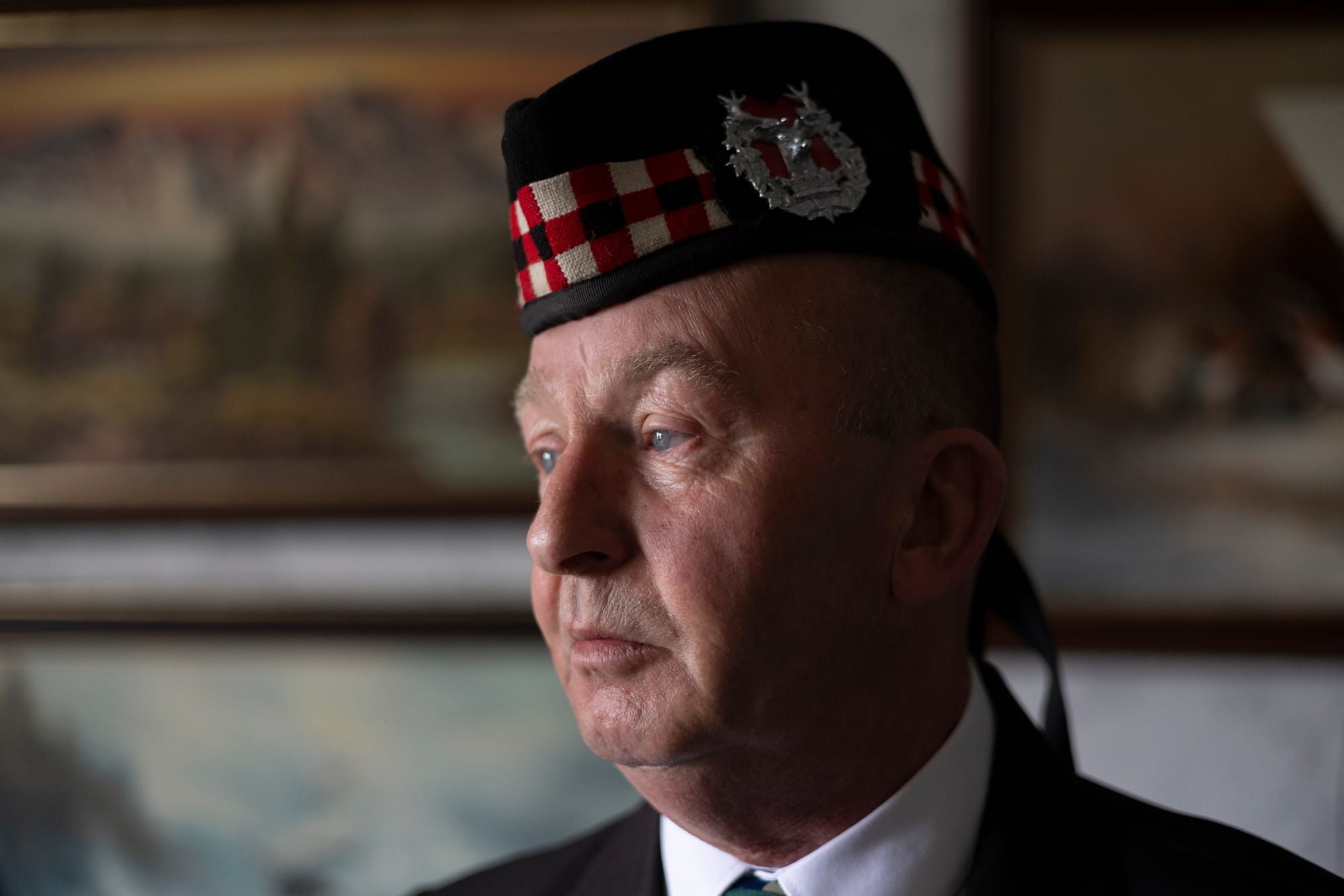
A lengthy silence ensues; I don’t know what question to follow up with. Christine suddenly arrives home and McAnespie relaxes back into his chair. “Milk, two sugar,” he mutters with a faint grin. “Kiss my big toe!” she laughs, before going to make the brew.
Is there anything you do to decompress? “Pff, pretty much no,” he says, the walls back up. “Apart from the odd holiday once or twice a year”. But even on holiday, he’s taking HVP calls by the pool, he admits.
That’s a lot to take on, I say. “That’s my coping mechanism,” he replies. “Work, charity stuff. It means I don’t have time to dwell on things, I just have to live in the moment, I don’t have time to bother about my ain issues. I’m too busy dealing with somebody else’s.”
Comments
How to comment:
If you are already a member,
click here to sign in
and leave a comment.
If you aren't a member,
sign up here
to be able to leave a comment.
To add your photo, click here to create a profile on Gravatar.

